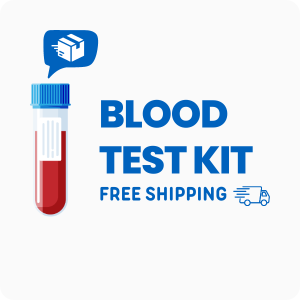Understanding the Alpha-Gal (Alpha Galactose) IgE Test
The Alpha-Gal IgE test is a critical tool for diagnosing Alpha-Gal Syndrome, an allergic reaction to red meat. This test measures the level of IgE antibodies to Alpha-Gal in the blood, which are produced in response to red meat consumption in affected individuals.
Importance in Medicine and Functional Medicine
In medical and functional medicine contexts, the Alpha-Gal IgE test is essential. It helps diagnose Alpha-Gal Syndrome, which can cause significant allergic reactions to meats. Alpha Galactose Syndrome can be triggered by ticks (most notably the Loan Star tick) that carry the Alpha-Gal, resulting in an immune attack, which can lead to a red meat allergy. In functional medicine, early detection and management are crucial for improving quality of life and avoiding potential allergens.
Why Consider the Alpha-Gal IgE Test?
Considering this test is vital if you experience unexplained allergic reactions, particularly if you have a history of tick bites since a condition known as . The test can provide clarity on your symptoms and guide dietary adjustments to avoid triggering foods.
Labs Included in Your Order
| Test Name | Reference Range | Description |
|---|---|---|
| Alpha-Gal IgE | <0.10 kU/L = Negative 0.10-0.34 kU/L = Equivocal 0.35-0.69 kU/L = Low Positive 0.70-3.4 kU/L = Moderate Positive 3.5-17.4 kU/L = High Positive 17.5-49.9 kU/L = Very High Positive 50.0-99.9 kU/L = Very High Positive >= 100 kU/L = Very High Positive |
This test measures IgE antibodies specific to Alpha Galactose, indicating potential allergic reactions to red meat. |
According to MLabs, “The Alpha-Gal IgE test more specifically defines the etiology of allergic responses to meat allergens in patients with a delayed onset of symptoms (3 to 6 hours after meal).”
FAQs
What is the Alpha-Gal IgE Test For?
This test is used to diagnose Alpha-Gal Syndrome, an allergy to red meat and related products.
What Causes High and Low Levels of Alpha-Gal IgE?
High levels of Alpha-Gal IgE are typically caused by an immune response to Alpha-Gal, a sugar found in red meat. Low levels indicate no significant sensitivity. One possible trigger is when the immune system is initially exposed to Alpha Galactose after being bit by a tick. Ticks can carry Aphal Galactose, so after a bite, it is possible for the Alpha-Gal to trigger the immune system to attack it, leading to an allergy to meats.
Signs and Symptoms of Alpha-Gal Syndrome
Symptoms include allergic reactions such as hives, itching, swelling, and gastrointestinal distress, often occurring hours after consuming red meat.
How Often Should I Retest?
Retesting frequency depends on your symptoms and healthcare provider’s recommendation. It’s usually advised if symptoms persist or change.
How Accurate is the Alpha-Gal IgE Test?
The test is highly accurate in detecting Alpha-Gal specific IgE antibodies, crucial for diagnosing Alpha-Gal Syndrome.
Are Test Results Private and Confidential?
Lab results are provided securely through your TrueHealthLabs.com results tab under “My Account.” Results may be provided to local, state, or federal health authorities, but only when legally required, as in the case of communicable diseases like STDs or COVID-19. Review our privacy policy for more details.
To learn more, see our comprehensive guide to Alpha-Gal Syndrome.
References
- MLabs: Galactose-alpha-1,3 galactose (Alpha-Gal) IgE
- Marshfield Labs: Allergen Panel, Alpha-Gal (FAGPL)
Medical Review Board
Reviewed by Jeff Donohue M.D. from Body Logic and Brady Hurst DC, CCCN. Written by True Health Lab’s team of editorial health contributors.
Disclaimer: This information is for educational purposes only and not intended as medical advice. Consult your healthcare provider for personalized guidance.
Why Customers Trust True Health Labs - What People are saying
Also rated 4.6 out of 5 based on 3452 ShopperApproved reviews- See all TrueHealthLabs.com reviews.









